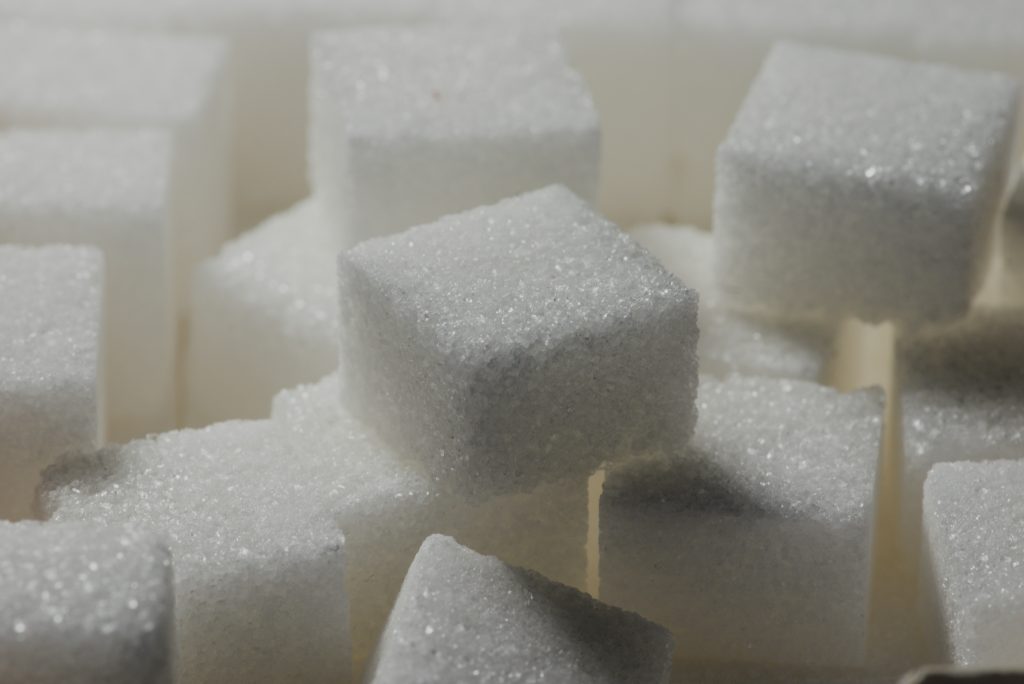FOR YEARS we’ve been led to believe that sweeteners are a healthier alternative to sugar, and in many instances they are. But with the recent headlines about Aspartame being potentially harmful to health, we’ve been made to think twice about what ‘healthy’ really means when it comes to the sweet stuff.
Expert nutritionist Elizabeth Houston gives the lowdown on sugar replacements and looks at what we can do to make life a little sweeter without compromising our health:
“Let’s start with the one on everyone’s lips, hopefully not literally, Aspartame. It’s a sweetener that’s being talked about a lot. So, what is it and why’s it such a big deal?
You’ll find Aspartame in the production of food and drinks, far and wide. It’s been used to sweeten the likes of fizzy drinks and other sweet treats since the 1980s. Used in replacement of sugar, it gives a taste said to be a mega 200 times sweeter than sugar – with the additional benefit of it being a lot less calorific than sugar too.
So … If it’s so tasty and low on calories, why the bad press? Well firstly, Aspartame is totally artificial – that means it’s totally chemical-based and man-made, created in a lab. In fact, there’s nothing natural about it whatsoever. And this means that often, our bodies have a tough time recognising it in our system and consequently a tough time working out how to digest it too.
But the bad news doesn’t stop there. In recent news, Aspartame consumption has also been linked to cancer, and a few days ago, was added to the WHO’s list of potentially carcinogenic ingredients[1] . That IS mega. And whilst it’s been stipulated it might take a LOT of aspartame on a daily basis to really be a risk – the link is there. Not so appealing now, right?
KNOW YOUR SWEETENERS
Aspartame and other artificial, man-made sweeteners are everywhere – and often in seemingly ‘healthy’ looking products: from yoghurts to chewy vitamins, fruit juices to chewing gum. So, what’s the sensible solution from here for those sweet-toothed ‘treataholics’ amongst us?
Well we’re right to look for an alternative to sugar. It isn’t healthy and is something we should consume in moderation (if indeed at all), not least because of its high calorie content, addictive qualities and also the harm it can cause to our teeth and our health[2].
The good news is (insert drum roll), not all sweeteners are bad for you. It’s true. One such sweetener is Xylitol. A plant-based sweetener, Xylitol is the least scary kind of sweetener you can get. It is 100% natural, has 40% fewer calories than cane sugar, and the properties in it actively clean your teeth and your mouth, making it good for your smile too. It’s so good it’s use in chewing gum and sweets is even approved by dentists and the Oral Health Foundation. That really IS good.
Other healthy sugar alternatives include the lesser-known Erythritol, and Stevia, both of which are plant-based and natural.
‘Not too bad for you’ sweeteners include the likes of Sorbitol, Mannitol, Maltitol, Isomalt and Lactitol. They are naturally-derived but sometimes they compromise the taste of a food or drink stuff, and they’ve been known to cause digestive issues.
Those that you really do need to give a wide berth, include, in addition to Aspartame, Acesulfame K, Saccharin and Sucralose.”
Here’s a mini guide to help keep you sweetener-savvy:
So, what’s the secret to still being able to enjoy deliciously tasty, sweet treats in the future?
– Look out for which sweeteners are in your food and drink in the first place; which ones are artificial and which ones are plant-based, and therefore better for you
– Know your good food brands from the bad; check out your fave products and see which brands use the good sweeteners, which use the bad, and which use none at all!
ONLY THE GOOD STUFF
Talking of good stuff, here are three good-for-you treats you can eat to hit the sweet spot, without risking unwanted health issues later down the line:
1) Gum’s the word
Chewing gum can be one of the worst offenders when it comes to artificial sweeteners. Naturally tasty, feel good treats, Peppersmith Gum, Mints and Pastilles are bursting with 100% natural flavours and thoughtfully-sourced ingredients that are actively better for you, including Xylitol.
From zingy Lemon Mints and Strawberry Pastilles to refreshing Peppermint Mints and Gum, the natural flavours include Peppermint and Spearmint oils, explosive Eucalyptus, Sicilian lemons and delicious strawberries, giving you banging flavour, whilst freshening your breath and caring for your dental health. From £1.30 (15g gum, Ocado), available from health shops and supermarkets nationwide, including Holland & Barrett, Waitrose and Sainsbury’s. Mighty Boxes and Mixed Taster Boxes are also available online from www.peppersmith.co.uk
2) Cool and clean
Jude’s Ice-Cream
3) Freshly pressed
Moju


